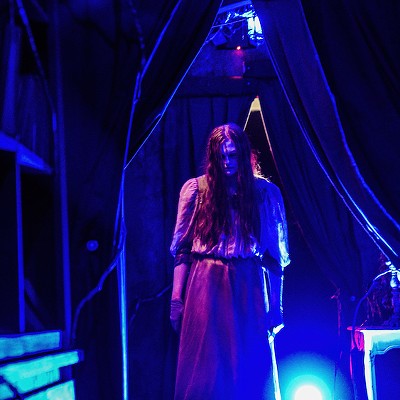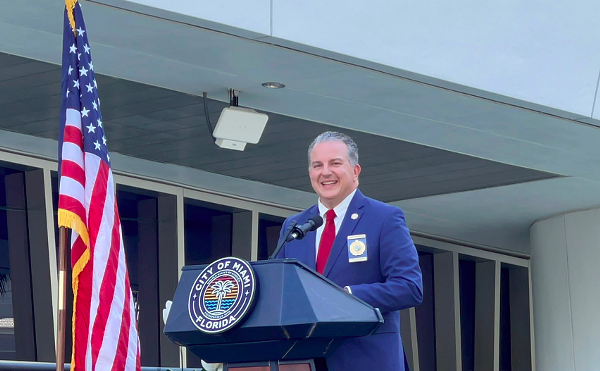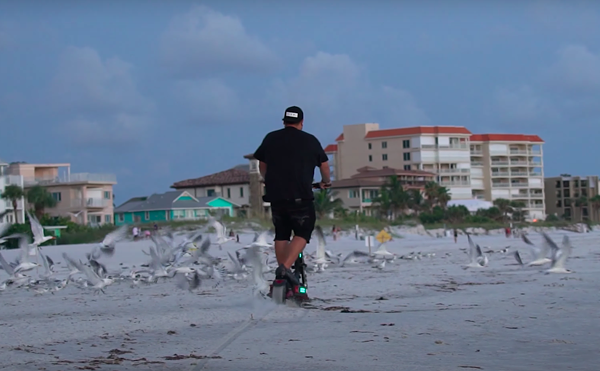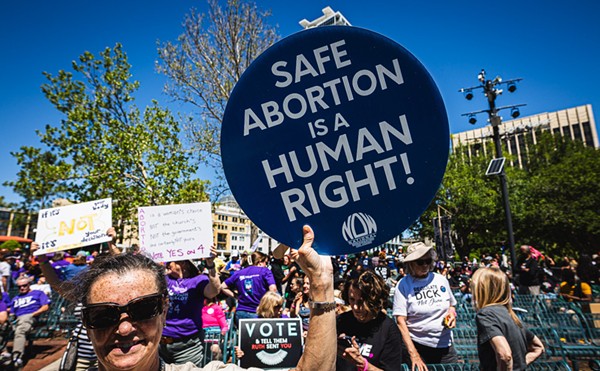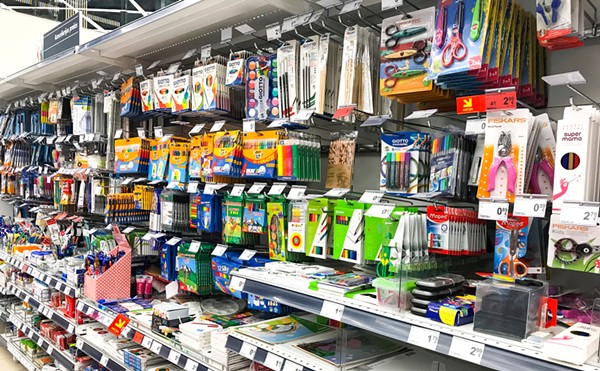Forget Janet Jackson's breast.
The media message I found really annoying during the recent CBS Super Bowl broadcast was Jennifer Lopez's public service announcement — which viewers can enjoy all through this election year on CBS's sister network MTV — urging young people to vote. At 33, which is not even that young anymore, Lopez only recently registered to vote herself via the Rock the Vote website, according to Us Weekly. That's still less awkward than the situation fiance Ben Affleck found himself in during the last election. Affleck, who'd worked on getting out the youth vote in 2000, began saying in interviews that he was thinking of running for Congress. So the Smoking Gun website did a Board of Elections check and found that the actor hadn't voted in 10 years.
I asked the Smoking Gun folks what Affleck's reaction was to that. "We get this e-mail from the spokesman," the site's co-founder Daniel Green responded, "and he says something like, 'Well, Ben tried to vote on election year, but there was a snafu at the voting booth — a bureaucratic snafu.' We said, 'The guy wasn't registered to vote! You can't vote if you're not registered!'"
Look, voting is a privilege as well as a right and if you don't vote, you should be ashamed of yourself. But the reason you should be ashamed of yourself is that not voting is lazy and idiotic. Should the lazy idiot constituency be encouraged to influence society even more than it already does? This is the paradox (and the problem) that hangs over these do-gooder media campaigns to get out the youth vote, which heat up every election year. But I don't see how the crotch-grabbing antics that now seem integral to the Viacom brand encourage an informed electorate. You can lead a horse to water, but you can't make him turn off the MTV.
Thomas E. Patterson, who heads Harvard's The Vanishing Voter project and has also written a book based on his research, acknowledges that a big factor in low voter turnout is today's dumbed-down populace: "The high-school-educated public of 1948," he writes, "knew as much about Harry Truman's and Thomas Dewey's positions on price controls and the Taft-Hartley Act as the media-saturated, college-educated public of 2000 knew about Gore's and Bush's stands on prescription drugs and tax cuts." Yet although of course Patterson wants people to be more knowledgeable, one of his complaints is that political campaigns (and their ensuing press coverage) numb potential voters by starting too early and going on too long. But is the problem really too much information? "We're not setting the agenda, but I think we have to respond to it," said CBS news president Andrew Heyward when I asked about this. "I certainly don't think any of the networks have been guilty of hyping election coverage."
Patterson does approve of NPR's sober, unsensational political coverage. But while I myself am a loyal NPR listener, I find their earnest messages about voting just as smarmy as those from J-Lo and her pals. A few days before the 2002 mid-term elections, for instance, I caught an NPR story about a high-school teacher trying to convince students that, yes, political issues do affect them and their little lives. Here was her rather desperate argument: They like to talk on cell phones in the car, right? Well, some legislators are trying to ban that! Which would put a real cramp in their driving style. Ergo, their votes matter.
Now maybe talking on cell phones while driving should be banned and maybe it shouldn't, but implying that's it's OK to vote strictly according to your own personal concerns is deeply irresponsible. Unless you're old enough to at least consider the other side of any argument, to think about the costs or benefits to society instead of just how it affects you personally, you are not yet old enough to vote and good for you if you realize this. A history teacher is the last person who ought to suggest otherwise.
Although Patterson admits that "in most locations, it takes about as long to drive to a video store and rent a couple of movies" as it does to vote, he's bought into the theory of increasing voter turnout by coddling. Taken to the logical extreme, his solutions — making Election Day a national holiday and allowing people to register at the last minute, eliminating the Electoral College, shortening campaigns, keeping polls open even longer — might include assigning government workers the task of physically carrying citizens to voting booths and then singing them to sleep that night with politically informed lullabies.
"Politics as usual," wrestler and former Minnesota governor Jesse Ventura once complained, "continues to neglect young people and their concerns." The current slogan of Ventura's friends at World Wrestling Entertainment and its Smackdown Your Vote campaign is Two Million More in 2004. All due respect to the beer-can-on-the-head demographic Jesse and WWE want to see flooding the polls, but my two big concerns when I first voted at age 19 were boys and makeup. I'm not convinced the republic would have been better served had the media catered to my interests even more than it already did.
Celebrity opinions about why we should vote are equally adolescent. "We ultimately aren't celebrating democracy here," Madonna said on the Rock the Vote website a few months ago. "Anybody who has anything to say against the war or against the president or whatever is punished." Punished? How? And for speaking out against the war and the president or for just, you know, whatever?
You may recall that Madonna got a lot of grief when she draped herself in an American flag for a Rock the Vote ad, urging fans to vote even though it turned out she herself had never bothered. But although you could call her silly and careless for that lapse, it's probably unfair to call her — or Ben Affleck — irresponsible. As those who saw Truth or Dare may remember, Madonna's understanding of politics is so limited that she considers Canada a fascist country. Why should she vote?
Let's hand it to the 18-to-30-year-old set: They do seem responsible enough to know when their deep ignorance of the issues means they should stay home on election day. So to them I say: Thank you for not voting. Because one of the rights in a free society is the right to be stupid, and I wonder how the nation is better off when people who don't read newspapers are encouraged by their TV sets (via all these nannyish public service announcements) to start acting as if they're making an educated choice.
In the eternal words of Marge on The Simpsons, "One person can make a difference. But most of the time they probably shouldn't."
Catherine Seipp is a UPI columnist and former Los Angeles correspondent forMediaweek. She has also written for Reason, American Journalism Review, Salon, and TV Guide. This story originally ran in L.A. CityBeat, Feb. 2004,



